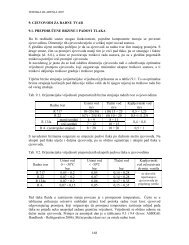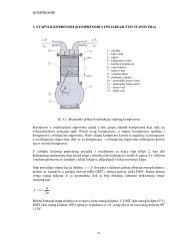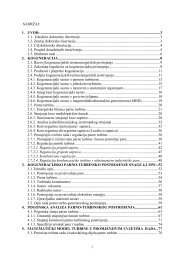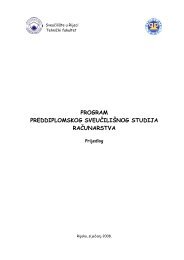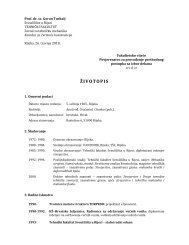universityâenterprise cooperation
universityâenterprise cooperation
universityâenterprise cooperation
Create successful ePaper yourself
Turn your PDF publications into a flip-book with our unique Google optimized e-Paper software.
3.3. European Commission incentives<br />
and encouragements<br />
3.3.1. Documents<br />
In the last 30 years the European Commission<br />
has been very active in promoting <strong>cooperation</strong><br />
between university and enterprise. In<br />
different communications and through various<br />
programmes for the promotion of education<br />
and training, the European Commission has<br />
promoted <strong>cooperation</strong> as a means of increasing<br />
the relevance of education to the needs of<br />
the labour market, of improving graduates’<br />
employability and of maximising the use of<br />
knowledge, with positive results both for<br />
research and for industry.<br />
The first example is the Comett Programme,<br />
set up in 1986, to strengthen <strong>cooperation</strong><br />
between universities and enterprises in the<br />
fields of training and technology. Thanks<br />
to Comett Programme, a large number of<br />
partnerships between universities and<br />
enterprises were set up and grants were<br />
awarded for staff exchanges between<br />
universities and firms. But in the recent<br />
years multiple actions have been proposed:<br />
a summary of the most interesting works of<br />
the last decade is reported in the table 3.1.<br />
Relationship between universities and the<br />
business community is of strategic importance<br />
and for the public interest. Partnerships with<br />
the business community bring opportunities<br />
for universities to improve the sharing of<br />
research results, intellectual property rights,<br />
patents and licenses. They can also increase<br />
the relevance of education and training<br />
programs through placements of students<br />
and researchers in business.<br />
3.3.2. Recommended changes<br />
According to European specificities, the<br />
Commission suggests that the following<br />
changes are going to be a key to success in the<br />
process of university-enterprise <strong>cooperation</strong>:<br />
3.3.2.1. To create a new curricula for<br />
employability<br />
In order to overcome inconsistency between<br />
graduate qualifications and the needs of the<br />
labour market, the Commission suggests that<br />
university programs should be structured<br />
to enhance directly the employability of<br />
graduates.<br />
Following changes to curricula and learning<br />
methods were adopted as primary:<br />
• The inclusion of transversal and transferable<br />
skills in curricula at all levels of qualification;<br />
• Better examination methods;<br />
• To give opportunities to talents from<br />
non-traditional backgrounds, including<br />
adults returning to study;<br />
• Greater interdisciplinary of education<br />
and research agendas.<br />
Schools and universities must be encouraged<br />
to provide the appropriate types of education<br />
and training to develop the skills needed by<br />
new generations of “knowledge workers”,<br />
who will need to combine expertise with<br />
entrepreneurial spirit.<br />
3.3.2.2. To foster the entrepreneurship<br />
Opinion is that a constant presence of<br />
business people on universities campus and a<br />
constant interaction of students to business<br />
would help create the required change.<br />
Appropriate field for this can be in the<br />
postgraduate training programs, and a good<br />
example can be the Marie Curie Initial Training<br />
Networks that focus on entrepreneurial skills.<br />
A great field for work are activities that should<br />
reach students from an early studies stage<br />
like, existing activities, e.g. conferences,<br />
internships and project work and these<br />
should be expansed, and extracurricular<br />
opportunities also were seen as useful,<br />
(start-up, spin-off companies).<br />
3.3.2.3. To transfer the knowledge<br />
A most universities need support to make the<br />
organizational changes and need to build up<br />
entrepreneurial attitudes if want to secure the<br />
27<br />
State of the art in the area of university-enterprise <strong>cooperation</strong> - EU level 3







